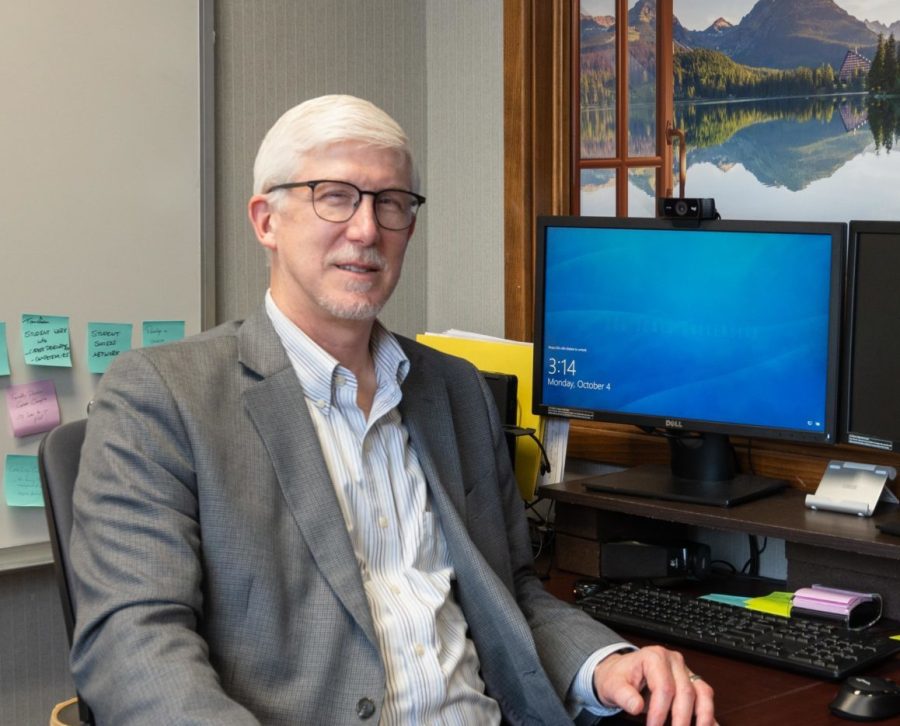Career Services works with Bob Jones University students to help them find internships that align with their major, interests and future careers, such as with business majors who can now substitute an internship for a course elective.
Shawn Albert, the director of Career Services, and Feaby Vera Cruz, the assistant director of internships and employment, work to ensure that internships meet BJU’s standardized policies.
“There has to be at least 40 hours of internship or internship-related duties for every [academic] credit,” Albert said. “One of the others is you need to be in a structured work environment, and there needs to be somebody there who is mentoring the intern.”
Internships for credit also have a minimum of six weeks to help students manage the time requirement.
“With a three-credit class, it would be 135 hours for an internship,” Vera Cruz said. “But we don’t want you completing that in two weeks. We want you to draw it out to have time to reflect and think about things that you’re working on.”
But the students must meet certain requirements to qualify for an internship for credit, including finishing 60 credits with 15 taken through BJU.
“And then there’s their department requirements that varies by department,” Vera Cruz said. “So some departments may have a GPA requirement, some of them might say you have to take a certain course first before you can do your internship for credit. You have to make sure you meet all those qualifications.”
Once a student meets the qualifications, Career Services steps in to connect the student with an internship.
“All of our programs have an internship catalog number in our undergraduate catalog,” Albert said. “So talk with the internship coordinator for your program, find out if there’s anything particular that you need to know and then begin to search for an internship that will help you reach your professional goals.”
The business major program uses internships to reinforce their education as well as professional goals the students have.
Dr. Robert Hucks, the chair of the Division of Management in the School of Business, works with business majors as they navigate their major and their internships.
“We transitioned to allowing an internship to be a substitute for an upper-level business elective, and then one can be used for a general elective,” Hucks said. “We actually allow up to 6 hours for internships.”
Beginning with the class of 2025, an internship is required for business majors to graduate.
“The evolution of the internship has been synchronized with our communication efforts for incoming students, as well as upperclassmen,” Hucks said.
Internships offer confirmation and guidance to students about their intended professions.
“You hear students’ stories every once in a while about someone who majored in something, thought they’d love it, had no practical experience, got out there in the work world and discovered [they] really don’t like this,” Albert said. “One in particular was a chemistry major who found that they really didn’t like spending all day in the laboratory.”
“There was a marketing graduate who told me that he wished he had taken a graphic design course, but if he had had an internship earlier on in his college career, he would have seen graphic design is important for [his] field, taken the course and then he’d have been better prepared once he had this full-time position,” Vera Cruz said.
Internships also provide pathways to future careers.
“You can hit the ground running and add value to your employer a whole lot sooner because you bring some value and some experience,” Albert said. “It also allows some employers to do internships to test drive a future employee [in their own business].”
And internships reinforce the education provided at BJU.
“An internship should be a key educational experience that connects your education to the work world in a very practical way,” Albert said. “We want our students to get internships that are lining up with what they intend to do long term.”
Katie Butler, a senior kinesiology major, started an internship this semester that aligns with both her major and future interests.
“An internship helps you get a first-hand feel for what a certain job is like,” Butler said. “It is very helpful if you do not have any first-hand experience, and it can help you gain confidence in your skills and gives you an opportunity to use what you have learned [rather] than just studied in books.”
Students can help prepare for life after graduation by thinking about internships, a bridge between the classroom and the work force.
“It’s not too early to think about internships,” Vera Cruz said. “So let’s start exploring, talking to people, networking, discovering yourself and what you want to do.”























































